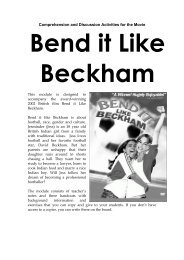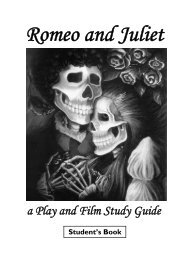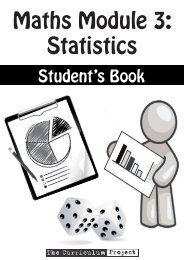Student's Book â Dec 2009 (5.9mb) - The Curriculum Project
Student's Book â Dec 2009 (5.9mb) - The Curriculum Project
Student's Book â Dec 2009 (5.9mb) - The Curriculum Project
Create successful ePaper yourself
Turn your PDF publications into a flip-book with our unique Google optimized e-Paper software.
extensionunderstandingdifferentperspectvesChoose one of the following roles:a. You are a Chinese trader. You are carrying Chinese silks and porcelain for salein India.b. You are a Muslim missionary from India. You want to spread your faith east.c. You are a Portuguese explorer. You want to get to the famous Spice Islands in orderto take control of the spice trade in Europe.d. You are a Malaccan trader heading towardsMoluccas.Describe your trip. Here are somequestions to help you organise your story.You don’t need to answer all of them -include as much information as you want.• What goods are you carrying?• How long will your trip take?• What time of the year are you likely to travel?• Where are you going?• Trace your route on a map.• What dangers are you likely to meet on your way?3.2 EXPLORATION AND TRADEKEY WORDScommodity (n) – any item which is an object of tradeintegrate (v) – grow together, become part of each other, depend on each othermanufacture (v) – to produce, make a lot of somethingporcelain (n) – very fine and expensive kind of ceramic (pottery) traditionally made in Chinaplantation (n) – a very big farm for only one type of crop (cotton, coffee, fruit, etc.)quantity (n) – number of something, amountroute (n) – way to goseafarer (n) – sailor, sea travellerself-sufficient (adj) – independent, only relying on yourselftrading post (n) – a place set up by an organisation or country for selling and buying thingsreviewretellingDescribe the beginning of European imperialism, based on the information you read inSection 3.1.Before 1500, European economies were mostly self-sufficient. <strong>The</strong>y traded only a little bit withAsia and Africa.After 1500, when new sea routes were discovered, European and Asian economies slowly startedintegrating. European political power and commerce both increased in Asia. Trade in profitablecommodities increased. Eventually, the increase in trade between Europe and other parts of theworld caused the development of the modern global (capitalist) economy.40


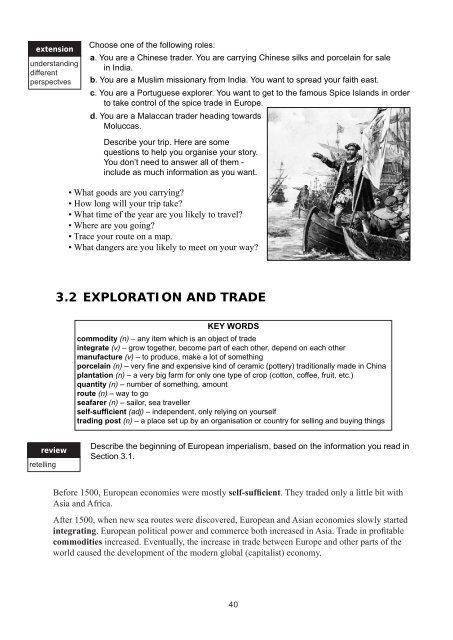
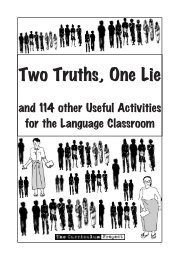
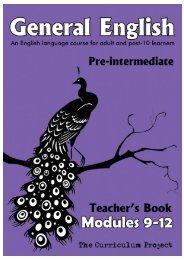
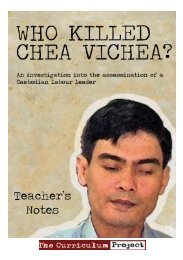
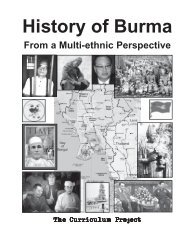
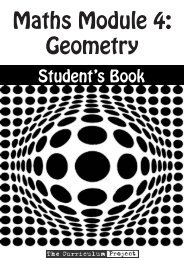
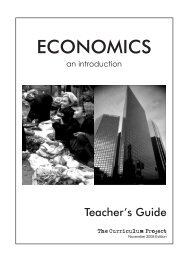
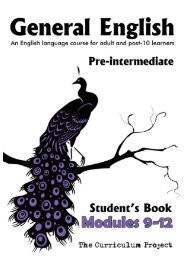

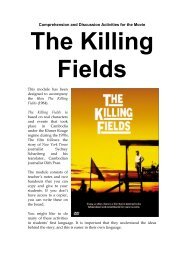
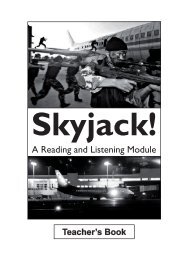
![[Eng] Nov 2012 DRAFT - The Curriculum Project](https://img.yumpu.com/45590859/1/184x260/eng-nov-2012-draft-the-curriculum-project.jpg?quality=85)
